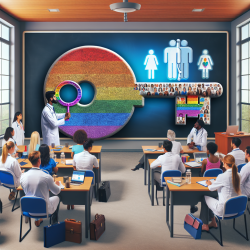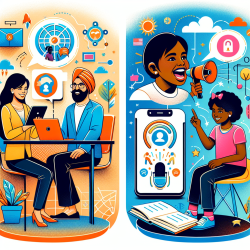Why LGBTQ+ Cultural Competency Training is a Game Changer for Health Professionals
In recent years, the healthcare industry has seen a growing recognition of the unique challenges faced by LGBTQ+ individuals. Health disparities in this community are often exacerbated by a lack of cultural competence among health professionals. The systematic review titled LGBTQ+ Cultural Competency Training for Health Professionals: A Systematic Review sheds light on the effectiveness of such training programs and their potential to transform healthcare practices.
The Need for LGBTQ+ Cultural Competency
According to the National Academies of Sciences, Engineering, and Medicine, LGBTQ+ individuals face significant health disparities due to previous or anticipated discrimination during healthcare encounters. These disparities include mental health issues, cardiovascular diseases, and cancer-related outcomes. The lack of culturally competent healthcare providers is a major concern, as it directly impacts the quality of care and health outcomes for LGBTQ+ patients.
Key Findings from the Systematic Review
The review analyzed 44 studies that quantitatively evaluated the effectiveness of LGBTQ+ cultural competency training for health professionals. Here are some of the key findings:
- Knowledge Improvement: 28 out of 39 studies reported statistically significant improvements in knowledge about LGBTQ+ culture and health following training.
- Skill Enhancement: Eight studies showed significant improvements in skills related to working with LGBTQ+ clients, such as communication and clinical management.
- Attitudinal Changes: 14 studies reported improvements in attitudes towards LGBTQ+ individuals, though this was less consistent than knowledge gains.
- Behavioral Changes: Seven studies showed significant improvements in behaviors towards LGBTQ+ affirming practices.
Implementing LGBTQ+ Cultural Competency Training
For health professionals looking to improve their practice, integrating LGBTQ+ cultural competency training can be transformative. Here are some steps to consider:
- Adopt an Interdisciplinary Approach: Training should involve multiple disciplines to provide a comprehensive understanding of LGBTQ+ health issues.
- Utilize Multiple Modalities: Combining online modules, in-person workshops, and interactive sessions can cater to different learning styles and enhance retention.
- Include LGBTQ+ Voices: Involving LGBTQ+ individuals as co-trainers can provide authentic insights and foster empathy among participants.
- Focus on Long-Term Engagement: Ongoing training and follow-up sessions can help sustain the positive impacts of initial training.
Encouraging Further Research
While the review highlights the potential of LGBTQ+ cultural competency training, it also underscores the need for more rigorous research. Future studies should focus on:
- Theoretical Framing: Utilizing robust theoretical frameworks can enhance the design and evaluation of training programs.
- Longitudinal Assessments: Evaluating the long-term impact of training on patient outcomes and healthcare practices is crucial.
- Patient-Reported Outcomes: Incorporating feedback from LGBTQ+ patients can provide valuable insights into the effectiveness of training.
For practitioners committed to providing inclusive and affirming care, embracing LGBTQ+ cultural competency training is a vital step. By enhancing knowledge, skills, attitudes, and behaviors, health professionals can improve patient-provider interactions and contribute to better health outcomes for LGBTQ+ individuals.
To read the original research paper, please follow this link: LGBTQ+ cultural competency training for health professionals: a systematic review.










